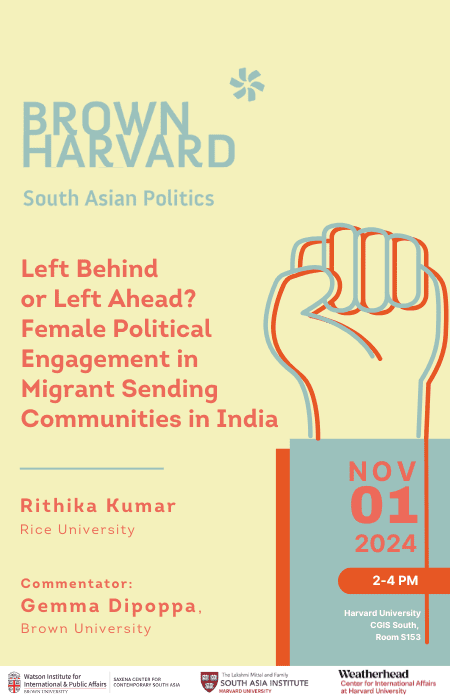Join us for a Brown-Harvard Joint Seminar on South Asian Politics with Rithika Kumar, Assistant Professor of Political Science at Rice University, moderated by Gemma Dipoppa, Assistant Professor of Political Science at Brown University.
This seminar will discuss how the temporary absence of men from the household due to migration affects female political engagement. While studies on gender and politics have established the centrality of the household, they have largely overlooked how temporary changes in household composition shape political engagement. Using original data from a survey experiment (n=642) in Bihar, India, Rithika Kumar will show that the absence of male members, particularly a woman’s husband, can lift implicit restrictions on female political engagement. Drawing on a primary survey (n=1900), and a nationally representative panel (n=24000), Kumar argues that male migration, a significant global phenomenon resulting in routine absence of men, is leading to the feminization of political engagement. Through an increase in exposure to the public sphere, women make meaningful claims on the state, participate in civic activities, and discuss politics. Unlike existing resource-based theories, Kumar finds that female political engagement can increase even in the absence of financial autonomy.

